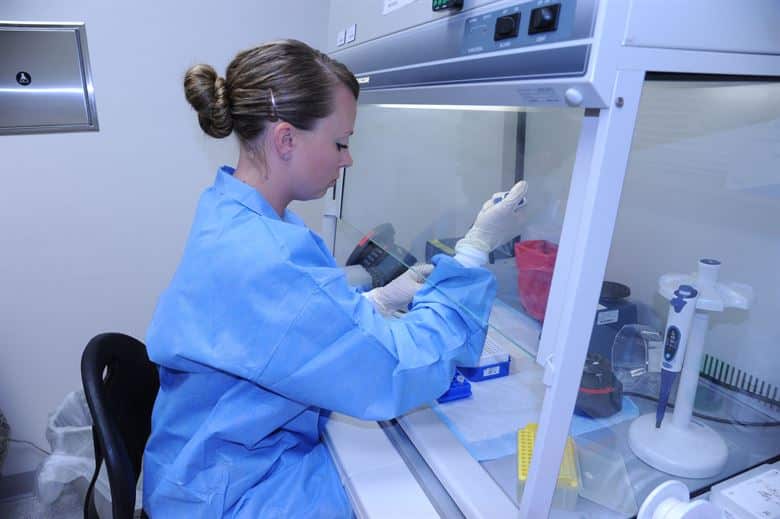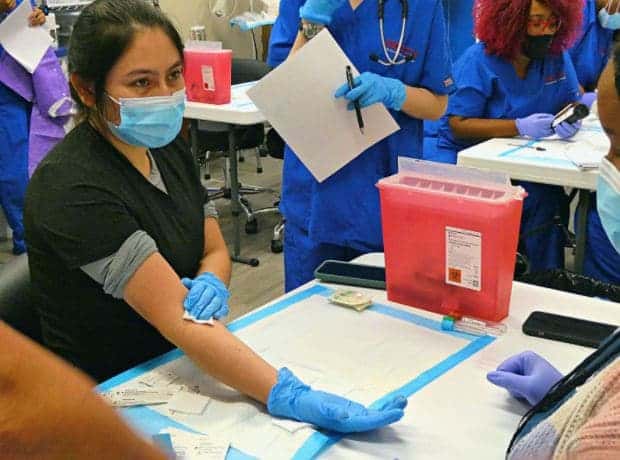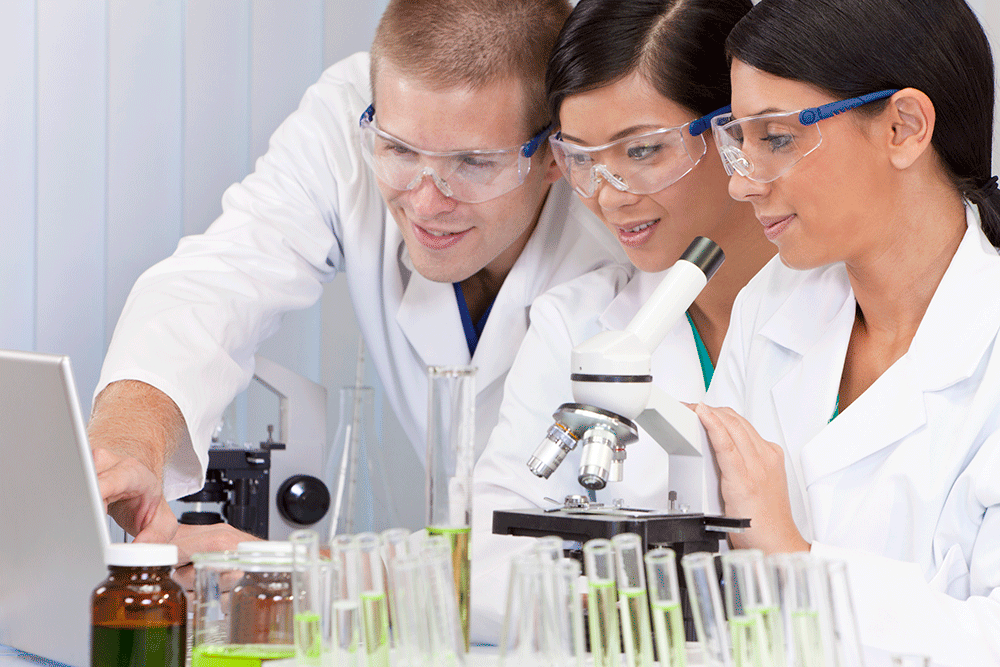
Medical Laboratory Assistant (certificate) in the AACC Catalog. On a rare occasion, some lab assistants can find a job straight out of high school and learn their skills on the job. Upon completion of this program, you are eligible to apply for national certification as a Medical Laboratory Assistant through the American Society for Clinical Pathology (ASCP). Bureau of Labor Statistics (BLS) states that lab assistants, also called lab technicians, usually need an associates degree or a certificate from a community college, technical school or hospital ( ). Graduates will qualify for entry-level specimen processor positions in the clinical laboratory sector. The MLA program includes a 100-hour practicum and serves as a career ladder from AACC’s Phlebotomy Letter of Recognition into the MLA certificate and then to the Associate of Applied Science (A.A.S.) Medical Laboratory Technician (MLT) degree. You will learn the practical skills needed to excel as an MLA in in-patient and out-patient phlebotomy and processing, blood donor phlebotomy and processing, specimen accessioning, Point-of-Care and Clinical Laboratory Improvement Amendment (CLIA’88) waived testing, and computer and customer service skills. The Medical Laboratory Assistant (MLA) 29-credit certificate program provides the education needed to prepare you as a trained MLA in a variety of clinical laboratory settings including hospitals, clinics and physician office laboratories. You will learn the practical skills needed to excel as an MLA in in-patient and out-patient phlebotomy and processing, blood donor phlebotomy and processing, specimen accessioning and other skills. Upon graduation from AACC’s MLT program, you can be credentialed as an MLT(ASCP) by taking the American Society of Clinical Pathology Board of Certification (ASCP-BOC) MLT examination. It is an ever-changing and challenging career that you can take anywhere in the United States.
LAB ASSISTANT CERTIFICATION PROGRAMS MANUAL
As an MLT, you will analyze blood, body fluids and microbiology cultures work up blood units for transfusions, operate automated equipment, instruments and analyzers and conduct manual testing in accordance with federal laws, guidelines and national standards. Interested in this program? Start the enrollment process by visiting the Apply to STLCC page.Are you interested in a career in clinical laboratory science? Did you know that doctors and other health professionals rely on the work of laboratory professionals to make an accurate patient diagnosis over 70 percent of the time?Ĭonsider pursuing a career as a Medical Laboratory Technician (MLT) and become a member of the laboratory team. Time to complete a program of study varies depending on the number of credit hours students earn per semester. Typically, most recent cohorts for wage and completion data are six years prior to the current academic year.

The following limitations to the data apply: Information provided is based on the most recent cohorts available. Louis Community College” and choose the degree or credential type of interest.

Louis Community College can be found at the following URL. Pursuant to Missouri HB 1606 (2018), information regarding the number of credit hours, program length, employment rate, wage data, and graduates employed in careers related to their program of study at St. For more information on cost of attendance visit MoSCORES. Students will be expected to take part in additional classroom enrichment and engagement activities, such as industry tours, as part of the program.Ĭost of Attendance. To earn this certification, you must have a high school diploma or the equivalent, have completed an accredited training program that was under the supervision of a lab scientist and pass an exam. A Learning Community consists of a group of students in the program, instructors, and tutors that work together toward successful completion of the program by students.Īdmission to the program is contingent upon meeting the established minimum criteria of placement scores. The American Society for Clinical Laboratory Science offers the Clinical Lab Assistants (CLA) certification. The certificate includes contextualized and integrated courses in life science and biotechnology delivered in a Learning Community setting.

In addition, this short-term program, designed to be delivered in two semesters, acts as a bridge into the college’s AAS Biotechnology program and other STEM programs.

This program prepares students for entry-level positions in life science research, development, and production.


 0 kommentar(er)
0 kommentar(er)
